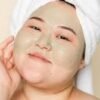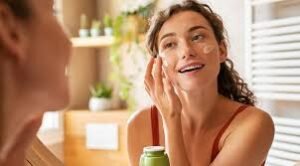Top 5 Beauty Myths Debunked
In the world of beauty, myths are plentiful. With the rise of social media and influencers sharing beauty tips, it’s easy to get caught up in misinformation. Unfortunately, these myths can lead people to make mistakes in their skincare and beauty routines that may actually harm rather than help. Understanding what’s true and what’s a misconception is crucial to maintaining healthy skin, hair, and overall beauty. In this article, we’ll debunk the top 5 beauty myths, helping you make informed decisions and avoid unnecessary mistakes.
Beauty Myth #1: “Expensive Products Are Always Better”
Many people assume that the more expensive a beauty product is, the better it must be. High-end packaging, luxury marketing, and celebrity endorsements can make certain products appear more effective than their less expensive counterparts. However, the price tag on a product doesn’t necessarily correlate with its quality or efficacy.
The Truth:
In reality, the effectiveness of a product depends on its ingredients, formulation, and how well it suits your individual skin type or hair texture. Some drugstore products are just as effective—if not more so—than their luxury counterparts. Active ingredients like hyaluronic acid, retinol, and vitamin C can be found in both high-end and affordable products. The key is to look at the ingredients list rather than the price tag. If a product contains well-researched, proven ingredients that target your specific skin concerns, it can deliver great results regardless of the brand or price.
When choosing products, focus on finding the right fit for your skin type and needs. Don’t assume that an expensive product will automatically be superior to a more affordable option. By paying attention to the ingredients and understanding your skin’s requirements, you can save money without sacrificing quality.
Beauty Myth #2: “Natural Products Are Always Safer and More Effective”
With the growing popularity of clean beauty and natural skincare, there’s a widespread belief that natural ingredients are inherently safer and more effective than synthetic ones. This myth suggests that if a product contains only plant-based or organic ingredients, it will automatically be better for your skin. While natural ingredients can be beneficial, they aren’t always superior to their synthetic counterparts.
The Truth:
Just because an ingredient is natural doesn’t mean it’s more effective or safer. Poison ivy is natural, but you wouldn’t want it in your skincare routine! Some natural ingredients can cause allergic reactions or irritations, especially if used improperly or without proper formulation.
Moreover, many synthetic ingredients have been extensively researched and developed to provide targeted results. For example, synthetic versions of vitamin C or retinol can be more stable and effective in certain formulations than their natural equivalents. It’s also worth noting that “natural” doesn’t always equate to “better.” What matters most is the safety, effectiveness, and compatibility of the ingredient with your skin.
When evaluating beauty products, it’s important to consider both natural and synthetic ingredients based on scientific evidence and how they work for your skin rather than assuming that natural is always better.
Beauty Myth #3: “You Only Need Sunscreen on Sunny Days”
Many people believe that sunscreen is only necessary during summer months or when spending time outdoors on sunny days. Unfortunately, this misconception leads to insufficient protection against the harmful effects of UV radiation. The truth is, even on cloudy days or during winter, the sun’s UV rays can still cause damage to your skin.
The Truth:
UV radiation is present year-round, regardless of the weather. UVA rays, in particular, can penetrate clouds and glass, meaning that you’re still exposed to harmful rays even when indoors or on overcast days. UVA rays are responsible for long-term skin damage, such as premature aging and an increased risk of skin cancer.
To effectively protect your skin, you should wear sunscreen with at least SPF 30 every day, regardless of the weather or season. Make it a part of your daily skincare routine to ensure continuous protection from UV damage. This is especially important if you spend time near windows, drive regularly, or live in a high-altitude area where UV exposure is more intense.
Beauty Myth #4: “Oily Skin Doesn’t Need Moisturizer”
A common misconception among people with oily or acne-prone skin is that they don’t need to use moisturizer. Many believe that adding moisture will only make their skin oilier or cause more breakouts. As a result, they may skip this step in their skincare routine, thinking it will help control excess oil.
The Truth:
Moisturizing is essential for all skin types, including oily skin. In fact, when you skip moisturizer, your skin may overcompensate by producing even more oil, leading to a greasier complexion and an increased likelihood of breakouts. The key is to choose the right type of moisturizer that provides hydration without clogging pores.
Opt for lightweight, oil-free, or gel-based moisturizers that are designed for oily or combination skin. These formulas provide the necessary hydration without feeling heavy or greasy. Look for ingredients like hyaluronic acid, which hydrates without adding oil, or niacinamide, which helps regulate sebum production.
Moisturizing regularly will help balance your skin’s natural oil production and prevent dehydration, which can trigger even more oil production.
Beauty Myth #5: “Pores Can Open and Close”
You’ve likely heard the Beauty myths that pores can open and close, and that using hot water or steam will “open” your pores while cold water will “close” them. This idea has been perpetuated by beauty routines involving steam facials, hot compresses, and cold rinses. However, the concept of pores opening and closing like doors is a misconception.
The Truth:
Pores do not have muscles and therefore cannot open or close. What hot water or steam does is loosen the buildup of dirt, oil, and dead skin cells inside your pores, making it easier to clean them out. Cold water, on the other hand, may temporarily reduce the appearance of pores by causing blood vessels to constrict, but it doesn’t actually “close” them.
Instead of focusing on opening or closing your pores, aim to keep them clean and clear by using gentle exfoliation, regular cleansing, and non-comedogenic products. Ingredients like salicylic acid can penetrate the pores and help dissolve excess oil and debris, while clay masks can absorb impurities.
Taking care of your pores means maintaining a consistent skincare routine that addresses your skin’s needs without causing irritation or clogging.
The Top Skincare Routine for Any Complexion
Conclusion: The Importance of Knowing Beauty Facts
Beauty myths can be misleading and result in ineffective or even harmful practices. By understanding the science behind skincare and beauty products, you can make more informed decisions about your routine. Remember, expensive products aren’t always better, natural ingredients aren’t always safer, sunscreen should be worn daily, oily skin needs moisturizer, and pores don’t open and close. Armed with this knowledge, you can take better care of your skin, ensuring it remains healthy, radiant, and protected.








Leave a reply